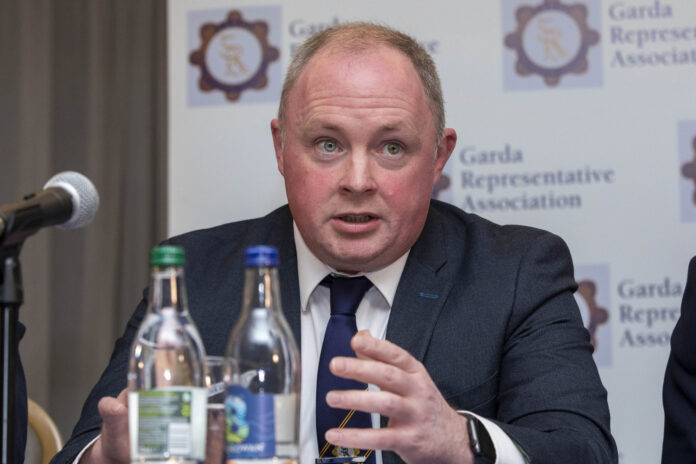
GARDA Headquarters today (September 19) said it would press ahead with plans to recommence the operation of a controversial Garda rostering system which has led to the majority of rank and file members expressing no confidence in Garda Commissioner Drew Harris.
Yesterday, Garda Frank Thornton, of the Garda Representative Association (GRA), stated that Garda management had informed Limerick Community Policing Unit and the county’s rural Drugs Unit that they were being “disbanded and reassigned to core frontline duties”.
Garda Thornton also explained that “proactive operations like Operation Croí (set up to tackle the sale of drugs, thefts, and anti-social behaviour) had also been “discontinued” as part of the soon-to-be re-implemented Westmanstown Roster, which is being championed by Commissioner Harris.
Garda Thornton claimed the disbandment of specialised units and operations “in effect erodes all the efforts to date in combating crime and drug activity in Limerick”.
It was the opinion of another senior Garda source that there will not be any resources available under the Westmanstown Roster agreement for staffing community policing units, and so, in their view, “there will be none”.
“It is horrendous and we don’t know where it is going to end,” the experienced officer added.
Gardaí agreed to the Westmanstown Roster (seeing Gardaí work shifts six days on, four days off) prior to the implementation of an emergency Covid-19 roster (four days on, four days off) in 2020, but they now claim that the Covid-era roster provides Gardai with a better work life balance and has increased their job efficiency.
Responding today, Garda HQ said it will “recommence the operation of the agreed Westmanstown Roster on the 6th November 2023”.
“The Westmanstown Roster is the only roster that has the collective agreement of all the Garda Associations and operated between March 2012 and March 2020 before the outbreak of the Covid-19 pandemic, which resulted in an emergency roster being introduced to deal with the unique policing requirements of the time.”
Garda HQ described the emergency Covid-19 roster as “no longer suitable for the delivery of a 24/7 policing service”.
“The Westmanstown Roster, when successfully implemented in 2012, restructured An Garda Síochána from a four unit roster to a five unit roster, and operated for eight years until 2020,” it said.
Garda HQ added that when the Westmanstown Roster was first implemented at the end of 2012, the Garda Workforce consisted of 15,881 personnel (13,424 sworn Garda members and 2,457 Garda staff, based on figures from December 2012), while the current Garda Workforce consists of 17,252 personnel (13,910 sworn Garda Members and 3,342 Garda staff, based on August 2023 figures).
“Every Garda Division is presently engaged in preparations to implement the Westmanstown Roster,” it said.
Garda HQ said that “no Garda members formally appointed to specialist units have been impacted as part of the reintroduction of the Westmanstown Roster in the Limerick Division”.
It said the Community Policing Unit and the Divisional Drugs Unit in Limerick had not been disbanded, however, it added, “where necessary, some members have been temporarily reassigned from the Community Policing Unit and the Divisional Drugs Unit so as to ensure the delivery of a consistent service”.
“These changes will be addressed through the ongoing recruitment process and assignment of new personnel to Limerick Division.”
It argued that the Westmanstown Roster would provide opportunities to “restructure” local units “and thereby enhance the service to the public”.
However, Garda Thornton described present Garda resources as “threadbare”, adding that rank and file members were “exhausted and worn out”.
“Let’s not get caught up in the ideology that every guard is a community policing guard, it’s simply not possible, frontline policing simply does not have the resources nor time to devote to community policing,” said Garda Thornton.
“After all, An Garda Síochána states that Community Policing ‘engage with local schools and projects that frontline members simply do not have the time to engage in’. But now all of a sudden we do have the time and resources.”
Garda Thornton said, because of this, in the GRA’s view, Commissioner Harris’s decision to implement the Westmanstown Roster “lacks rationale” and “places our members at a greater risk of work related stress and fatigue”.


